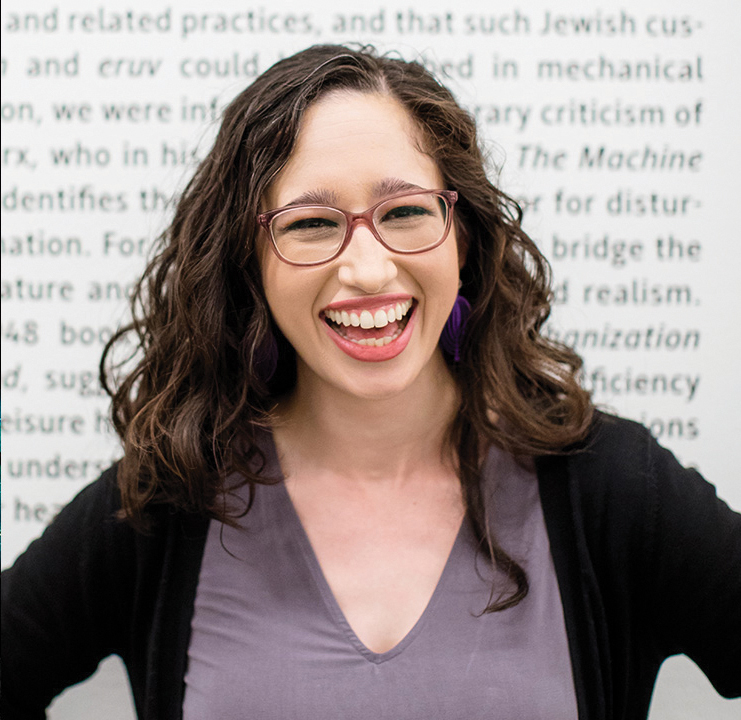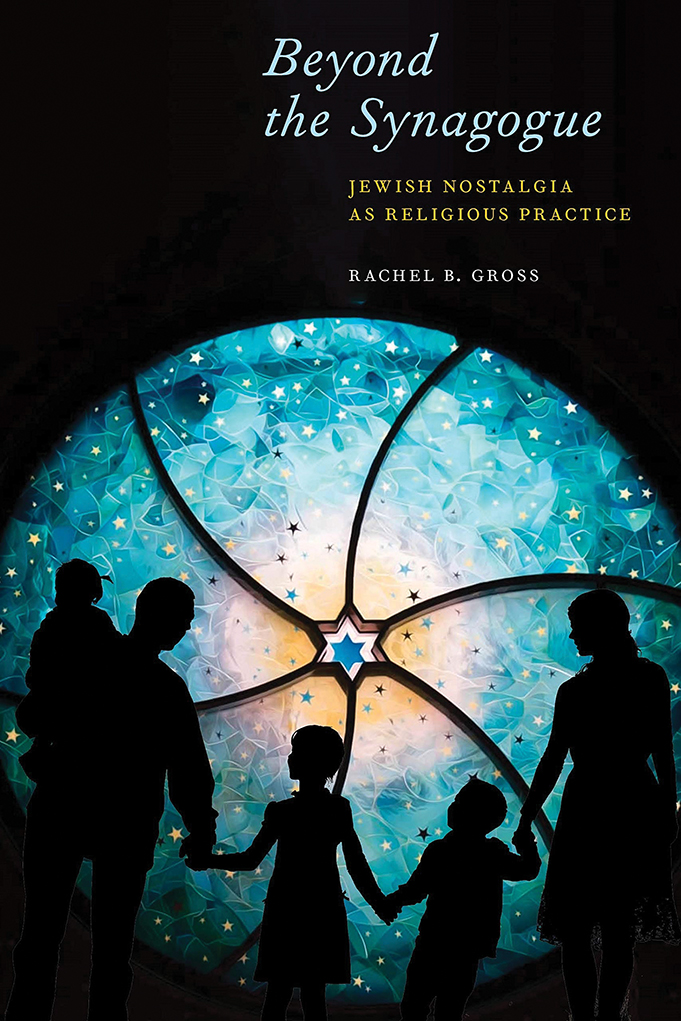Finding religion in delis, museums

By Alix Wall, j. The Jewish News of Northern California
Rachel B. Gross can pinpoint the exact moment the idea for her book was planted. It was when one of her undergrad professors introduced herself as “an anthropologist of Jews.”
“I just thought that was the coolest thing possible, that you could study contemporary Jews for a living,” Gross said. “I wanted to grow up to be that, to study living people and the ordinary things they did.”
It was the genesis for what started as a master’s thesis, developed into her doctoral dissertation and then, after many revisions, into a book, just published by NYU Press.
Beyond the Synagogue: Jewish Nostalgia as Religious Practice grew out of Gross’ interest in historic synagogues that now function as museums and what people feel while in those spaces, especially about community and family. That interest expanded to include “material culture” — the study of people and their stuff, how they use it to tell stories, what meaning it holds for them, and how they buy, sell, and create it.
In other words, nostalgia.
“I think nostalgia is a really useful word that gets at our longing for the past,” said Gross. “It connects us to our families and bigger histories.”
Gross, 35, who came to the Bay Area in 2016, is an assistant professor and the John and Marcia Goldman Chair in American Jewish Studies at San Francisco State University, where her course topics range from U.S. Jewish history to Jewish food and Jews in popular culture.
For her book, Gross wanted to look at the Jews today who are connecting deeply to their Judaism but in nontraditional ways. They may not attend synagogue, but they have a religious experience nonetheless through other vehicles. In addition to synagogues-turned-museums, she focused on how Jews learn about their ancestors through genealogy, the study of Jewish foodways, and how children learn about Jewish nostalgia through books and toys.
You can absolutely go to synagogue regularly, and (also) find meaning in a deli.
In one example, the immensely popular American Girl company created a Russian Jewish immigrant doll from the Lower East Side as part of its historical series, which had enormous power in shaping a narrative familiar to many Jewish families while introducing it to non-Jewish consumers, too.
“These kinds of institutions are not ones we normally think about when we think about the institutions that shape Jewish lives,” she said. “But what happens when we do take them seriously as public institutions?”
The food section opens with an anecdote from Saul’s Delicatessen & Restaurant. It’s coincidental, since Gross had never been to the Berkeley food institution and did her initial research by phone before she knew she’d be moving to the Bay Area. Boichik Bagels in Berkeley is also mentioned, as is Wise Sons Deli.
Gross writes about the new Jewish food movement, explaining for example how Jewish delis straddle the line between wanting to replicate dishes customers crave as they remember them versus adapting tastes to new, healthier versions.
One of Gross’ favorite anecdotes is about the dilemma Saul’s owners Peter Levitt and Karen Adelman faced over their pickles. They were committed to making their own full-sour and half-sour pickles in-house, with locally grown produce, which meant sticking to the cucumber growing season — even though they knew not every customer would understand the farm-to-table thinking behind why they couldn’t always have a pickle with their pastrami.
Gross has given numerous public lectures in the Bay Area, with Jewish food as a regular topic, and she teaches a class at S.F. State called Food Fights: The Politics of U.S. Jewish Consumption. But she said food represents only a quarter of her research in the book.
And, in fact, food is only one of the ways people are finding Jewish meaning outside of synagogues or institutional life. Gross found that level of observance does not necessarily dictate their choices as they embrace different paths to Jewish practice.
“I think of religion in terms of the ways we create meaning that connects us to our families, communities, and the larger narratives in history, particularly those that connect us to these big stories,” she said. “You can absolutely go to synagogue regularly, and (also) find meaning in a deli. People can find great meaning in performing everyday activities.”
To read the complete March 2021 Dayton Jewish Observer, click here.


